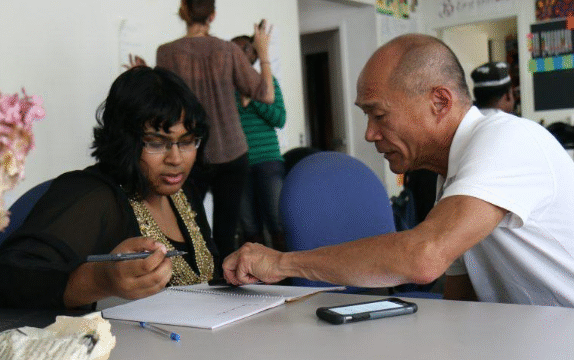Education has often been viewed as something reserved
for children and young people, yet learning does not end
once we leave the classroom. In fact, the journey of
knowledge can be lifelong, and adult education has become an essential part of building stronger, more inclusive communities. From learning to read later in life to developing new professional skills, teaching adults shows that education is not bound by age. Instead, it is a powerful tool that supports confidence, independence, and personal growth for everyone.
When we think of adult learners, we may picture people returning to school after years away, but the reality is much broader. Adults seek education for many reasons. Some may never have had the opportunity to finish formal schooling, while others may want to improve skills for better job opportunities. Many simply want to enrich their personal lives by exploring subjects like art, history, or technology. Each motivation is valid and reflects the idea that education is not only about earning qualifications but also about improving quality of life.
One of the most important aspects of adult education is accessibility. Programs designed for adults must consider the challenges that older learners face. Unlike children, adults often juggle multiple responsibilities such as work, family, and financial obligations. This means flexible learning options are essential. Evening classes, weekend programs, and online courses provide the flexibility adults need to pursue education without giving up their existing commitments. Technology has played a major role in expanding access, as online platforms now allow people to learn from anywhere, at their own pace, and often at lower cost.
Teaching adults also requires different approaches compared to teaching younger students. Adults bring a wealth of life experience into the classroom, which can enrich discussions and make learning more practical. For example, someone who has worked in a trade for decades may apply their knowledge when studying mathematics or business, while a parent might bring valuable insights into social or cultural studies. Educators must recognize this and encourage participation, treating learners not as blank slates but as contributors to shared knowledge.
Motivation is another key factor in adult learning. While younger students are often in school because it is required, adults usually choose to learn voluntarily. This choice often comes with a clear sense of purpose, such as securing a promotion, changing careers, or fulfilling a long-held dream. Teachers can support this motivation by connecting lessons to real-life situations. A literacy class, for example, might focus on reading everyday documents like job applications or health information, while a computer class could teach practical skills like using email or managing finances online.
Adult education also has a significant impact on communities. When individuals gain new skills, they not only improve their own lives but also contribute positively to society. Literacy programs, for instance, help adults engage more fully in civic life, whether by voting, participating in local discussions, or supporting their children’s education. Workforce training programs strengthen local economies by preparing people for jobs that are in demand. In this way, teaching adults is not just a personal investment but a community-wide benefit.
Of course, there are challenges to adult education. Stigma can be a barrier, as some adults may feel embarrassed about returning to the classroom or worry that they will not keep up with younger learners. Financial constraints can also prevent people from enrolling in programs, particularly if they must pay for classes while managing other expenses. Additionally, adults who had negative school experiences in the past may feel anxious about trying again. Addressing these barriers requires supportive learning environments where every learner is respected, encouraged, and celebrated for taking the step to learn.
Teachers who work with adult learners often describe their classrooms as inspiring places. Adults tend to bring curiosity, dedication, and determination to their studies. Many have waited years for the opportunity to learn and approach their lessons with seriousness and passion. This can create an uplifting atmosphere where both teachers and students grow together. The success stories are powerful—an adult who learns to read for the first time, a parent who completes a diploma after decades, or a retiree who discovers a new passion for painting or languages. Each example shows that learning can be a source of joy and pride at any stage of life.
Another dimension of adult education is its role in promoting lifelong learning. In today’s rapidly changing world, new skills are constantly in demand. Technology, for example, evolves quickly, and many jobs require ongoing training. Adults who embrace learning are better prepared to adapt to changes in their careers and lives. Lifelong learning also supports mental health by keeping the mind active and engaged. Studies suggest that continued education can reduce the risk of cognitive decline and provide a sense of purpose and achievement.
Communities, governments, and organizations play an important role in supporting education for adults. Public libraries often provide free programs, while community centers host workshops and classes. Employers may sponsor training to help their staff grow professionally. Governments can fund literacy initiatives, vocational training, and programs that support people in reentering the workforce. These efforts demonstrate a shared recognition that education is not a one-time event but a continuous opportunity that strengthens society as a whole.
At its core, teaching adults affirms the principle that education truly is for all ages. Every person deserves the chance to learn, grow, and reach their potential, no matter their background or stage in life. Whether it is an adult learning to read for the first time, a worker upgrading skills for a new career, or a retiree exploring a new hobby, each step toward knowledge is valuable. Education empowers individuals, uplifts families, and strengthens communities.
The message is clear: it is never too late to learn. When society invests in teaching adults, it invests in opportunity, dignity, and progress. As more programs continue to expand and adapt to learners’ needs, the future looks promising for inclusive education that welcomes everyone. Teaching adults is more than instruction; it is a celebration of resilience, curiosity, and the human spirit that seeks growth at every age.






